Sustainability Education
Education is the key enabler of creating a sustainable world for future generations. At NTU, we seek to incorporate sustainability education for students at different stages of their learning journey, through relevant courses or programmes, to provide them with the foundation and practical tools for understanding the concepts of sustainability and applying them to solve real world problems.
Undergraduate Programmes
Since 2021, we have introduced a sustainability course in our common interdisciplinary core curriculum for all undergraduates. This course aims to develop students with the critical skills to collaborate across disciplines to systematically analyze major sustainability challenges from the perspectives of society, economy, and the environment. Students will learn to address sustainability issues from different viewpoints and at different scales. They will then use these skills to discuss and propose solutions for sustainability challenges facing Singapore and the world.
- Bachelor of Engineering in Environmental Engineering
- Bachelor of Engineering in Bioengineering
- Bachelor of Engineering in Chemical and Biomolecular Engineering
- Bachelor of Science in Environmental Earth Systems Science with three specialization options (Geosciences, Ecology, Society)
- Bachelor of Science in Environmental Earth Systems Science and Public Policy and Global Affairs
- Bachelor of Science in Chemistry and Biological Chemistry with Second Major in Environmental Science
- Bachelor of Science in Biological Sciences
- Bachelor of Science in Physics & Energy Studies and Education
- Bachelor of Arts in Geography
- Second Major in Sustainability
- Second Major in Food Science and Technology (Open to Bioengineering, Chemical and Biomolecular Engineering, Chemistry and Biological Chemistry, Biological Sciences)
- Second Major in Society and Urban Systems (Open to Civil Engineering, Electrical & Electronic Engineering, Environmental Engineering, and Mechanical Engineering)
- Minor in Environmental Sustainability
- Minor in Sustainable Urban Planning
- Minor in Environmental Management
- Minor in Environmental Humanities
- Minor in Science, Technology and Society
- Minor in Science of Learning
- Minor in Chemistry and Biological Chemistry
Postgraduate Programmes
NTU is pioneering a new push in PhD education that will tear down barriers and drive research into areas that need a multi-disciplinary approach. In keeping with global trends and needs, students at the Interdisciplinary Graduate Programme at NTU will concentrate on two or more disciplines, instead of one. Today, fresh thinking is urgently needed to mitigate many global challenges, not least in environmental sustainability, the creation of viable alternative energy solutions, and many other wide-ranging and complex issues.
Joint NTU-TUM Master of Science in Green Electronics
The joint Master of Science degree program in Green Electronics is a new highly specialized programme offered on a full-time basis for training semiconductor researchers and engineers to work in the areas of novel electronic/optoelectronic devices and systems, with particular focus on the energy, sensing/monitoring and semiconductor manufacturing fields. This joint Master of Science degree program in Green Electronics is conducted by faculty from both EEE NTU and the Technical University of Munich.
The duration of the joint Master of Science (Green Electronics) is 24 months. Students will need to complete 2 Laboratory Core Courses (6 AUs), Select 6 out of 7 Core Elective Courses (18 AUs) and Select 4 out of 7 Elective Courses (12 AUs). The Laboratory core courses core includes: Laboratory 1: Semiconductor Process and Device Simulation, Laboratory 2: Design and Modelling of Nanodevices. The core elective courses include: Microfabrication Technology, Materials for Electronic Devices, Bioelectronics, Nanotechnology for Energy Systems, Microstructured Devices and Systems for Green Electronics, Optomechatronic Measurement Systems and Introduction to Power Systems. The elective courses include: Modern Semiconductor Devices, Low Power Displays and Solid State Lighting, Nanophotovoltaics, Green Nanotechnology, Polymer Electronics, Semiconductor Power Devices and Advanced MOSFET & Novel Devices. In addition, students are required to take 2 out of 6 Non-Technical Elective Courses to broaden their professional knowledge.
After completion of coursework, all students need to undertake 3 months of internship in industry and a further 6 months of independent research leading to a MSc dissertation. The internship and dissertation research can be carried out in different organizations or the same organization in Singapore or in Europe. (Students are free to choose where to complete the internship and dissertation requirements.) For NTU, the minimum cumulative grade point average (CGPA) for graduation from the Master of Science (Green Electronics) is 2.5.- Degree / FH Diploma
An applicant must have completed at least a Bachelor Degree (Honors) or European/German FH Diploma or its equivalent in areas of Science/Electrical/Electronics Engineering from a university with recognized standing with at least a 2nd Class Honors or equivalent. - As the Programme instruction medium is English, applicant must be able to demonstrate a satisfactory level of the language. Applicant whose native tongue or medium of instruction from previous studies (Bachelor / FH Diploma) is not English must submit at least one of the following:
-TOEFEL (www.toefl.org): With recent TOEFL score indicating a minimum of 600 for Paper based test or 100 for internet based test.
- IELTS (www.ielts.org): With academic IELTS result of at least 6.5.
Akademische Prüfstelle (APS) certificate is required for applicant with education qualification from China, Vietnam and India.
For further enquiry, please click here.
Programme Structure
| No. of AUs Graduate |
36 |
| Laboratory Core Modules |
2 Modules (6 AUs) |
| Core Elective Modules (Select 6 out of 7) |
6 Modules (18 AUs) |
| Elective Modules (Select 4 modules) |
4 Modules (12 AUs) |
| Internship for 3 Months |
Compulsory |
| Dissertation for 6 Months |
Compulsory |
| Non-technical Elective Modules (Select 2 out of 6) |
2 Modules |
| Min NTU CGPA Require to Graduate | ≥ 2.5 |
Programme Duration
Study Mode: Full time
| Type of Coursework Programme | Candidature | |
| Joint NTU-TUM (Full-time) | Minimum | Maximum |
| 24 months | 36 months | |
The Master of Science in Green Electronics degree is a 2-year full-time programme. Students must complete their coursework, 3-month internship and 6-month of Master Thesis writing to qualify for graduation.
Graduate level Modules offered
Laboratory Core Modules (45 hours per Module)
| Module Code | Module Title (3 AUs / Module) | Conducted By |
| NM6604 | Laboratory 1: Semiconductor Process and Device Simulation | NTU |
| NM6605 | Laboratory 2: Design and Modelling of Nanodevices | NTU |
Core Elective Modules (Select any 6) (45 hours per Module)
| Module Code | Module Title (3 AUs / Module) | Conducted By |
| NM6601 | Microfabrication Technology | NTU |
| NM6607 | Optomechatronic Measurement Syst ems | TUM |
| NM6618 | Materials for Electronic Devices | NTU |
| NM6619 | Bioelectronics | TUM |
| NM6620 | Nanotechnology for Energy Systems | TUM |
| NM6621 | Microstructured Devices and Systems for Green Electronics | TUM |
| NM6625 | Introduction to Power Systems | TUM |
Elective Modules (Select any 4) (45 hours per Module)
| Module Code | Module Title (3 AUs / Module) | Conducted By |
| NM6603 | Modern Semiconductor Devices | NTU |
| NM6617 | Advanced MOSEFT & Novel Devices | TUM |
| NM6622 | Low Power Displays and Solid – State Lighting | NTU |
| NM6623 | Nanophotovoltaics | NTU |
| NM6624 | Green Nanotechnology | NTU |
| NM6626 | Polymer Electronics | TUM |
| NM6627 | Semiconductor Power Devices | TUM |
Non-technical Elective Modules (Select 2 out of 6)
| Module Title | Conducted By |
| Business Administration | TUM |
| Production Planning in Industry | TUM |
| International Intellectual Property Law | TUM |
| Industrial Marketing | TUM |
| Innovation and Technology Management | TUM |
| Paradigm Shift to Industry 4.0 |
TUM |
| Augmented Reality |
TUM |
| Industrial Additive Manufacturing Quality Certification |
TUM |
| Cyber Physical Systems |
TUM |
Important Information and Links
International applicants are advised to have sufficient funds (whether from scholarships or personal funds or both) to cover the expenses of their entire period of study. There are no arrangements for employment for graduate students.
- Engineering
- Sustainability
- Full-time
- Master (Coursework)
- AY2019/2020
- College of Engineering
- School of Electrical and Electronic Engineering
- IGP-APRU-Global Sustainability, Waste & the City
- IGP-Earth Observatory of Singapore (EOS)
- IGP-Singapore Centre for Environmental Life Sciences Engineering (SCELSE)
- IGP-Energy Research Institute @ NTU (ERI@N)
- IGP-Nanyang Environment & Water Research Institute (NEWRI)
- IGP-NTU Institute for Health Technologies (HealthTech NTU)
- GIS and Geospatial Learning in Sustainability
Sustainability has become a key theme in higher education globally. It is also by now a core component of the revised MAHE programme. The spatial thinking tools and applications that you will learn in GIS will help you to better comprehend sustainability issues as well as devise solutions for such problems. This course will enable you to apply GIS vis-a-vis cross-disciplinary perspectives in the Humanities with respect to the Southeast Asian context.
- Global Cities
This course aims to introduce the urban ways of life and appreciate the emergence of global cities beyond the Global North. The course will also include various empirical and grounded experiences of global cities around the world, especially on issues related to urban liveability, sustainability, water, housing and other urban infrastructure issues.
- Environmental Planning and Management
This course examines selected environmental challenges in urban areas and explores planning solutions and management options to avoid or mitigate such problems. Multidisciplinary, integrated solutions that follow principles of sustainability are emphasized.
- Discourses in Sustainability
The environmental and social impacts of global climate change been increasingly emphasised. Accordingly, there is a need to equip learners with the history of sustainability studies, alongside current debates and possible future trajectories of this discipline. This knowledge will help learners better understand situations related to climate change and also opportunities in fostering environmental sustainability.
- Field Inquiry in Sustainability
Fieldwork strengthens our classroom concepts and gives the opportunity to understand the world through inquiry- based learning. This course will equip learners with both the qualitative and quantitative skills to collect and interpret data in ways that can help to inform environmental solutions for a more sustainable future.
- Second Major in Sustainability
- Aspiring students with a passion for Sport Science & Management (SSM) now can complement their degree by undertaking a Second Major in Sustainability. This Second Major in Sustainability within the SSM degree programme equips students with the knowledge and skills to address pressing environmental and social challenges faced by the sports industry.
- MBA (Sustainability & Innovation) Track
- Master by Research in Earth and Environmental Science
- Doctor of Philosophy in Earth and Environmental Science
- Joint NTU-TUM Master of Science in Green Electronics
- Master of Engineering (Research) in Civil and Environmental Engineering
- Doctor of Philosophy in Civil and Environmental Engineering
- Doctor of Philosophy in Biological Sciences
- Master of Science in Civil Engineering
- Master of Science in Maritime Studies
- Master of Science in Smart Manufacturing
- Master of Science in Power Engineering
- Master of Science in Materials Science and Engineering
- MBA (Strategy & Innovation)
- Master of Science in Finance
Continuing Education
NTU Continuing Education offers a wide range of programmes and courses for working professionals that are curated from various disciplines and conducted via different learning platforms. Aligning with the Government’s concerted effort to build sustainability as a way of work, play and life, that is the Green economy, specialised topics such as Sustainability Design, Energy Management, Environmental Management and etc. are created and delivered as either short courses or semester long courses, credit-bearing and stackable towards the relevant certificate(s) such as Specialist, Graduate and/or FlexiMasters certificate.














/enri-thumbnails/careeropportunities1f0caf1c-a12d-479c-be7c-3c04e085c617.tmb-mega-menu.jpg?Culture=en&sfvrsn=d7261e3b_1)

/cradle-thumbnails/research-capabilities1516d0ba63aa44f0b4ee77a8c05263b2.tmb-mega-menu.jpg?Culture=en&sfvrsn=1bc94f8_1)

7e6fdc03-9018-4d08-9a98-8a21acbc37ba.tmb-mega-menu.jpg?Culture=en&sfvrsn=7deaf618_1)


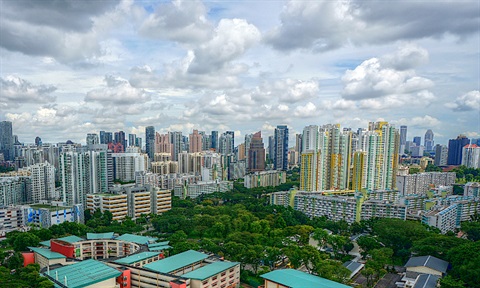





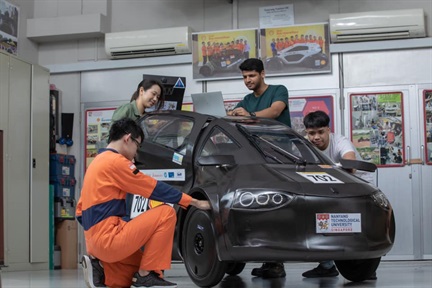
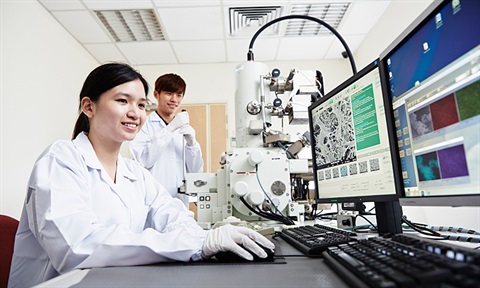
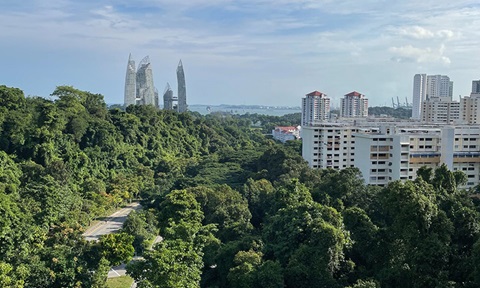
3b155ab0-477f-45d6-9972-7465366ee023.tmb-listing.jpg?Culture=en&sfvrsn=7e8fb3bc_1)

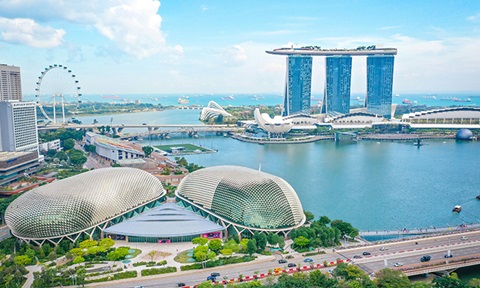

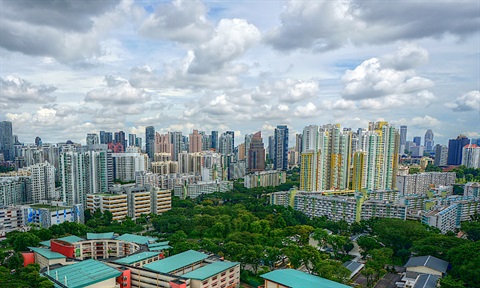




67c7970f-c11d-4403-b8eb-7d52eb23d471.tmb-.jpg?Culture=en&sfvrsn=e00131a8_5)